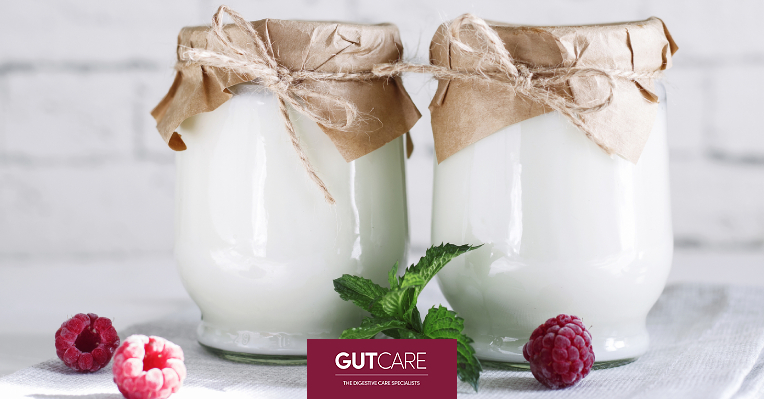Prebiotics & Probiotics: Knowing Their Difference Is Vital

If you enjoy eating yoghurts and other dairy products, chances are you might have seen them being marketed as rich in prebiotics or probiotics. Although they might have similar spellings, they have very distinct differences when it comes to their effects on your gut health.
In this article, we will explore their differences to help you understand how you can boost your gut health better.
What are prebiotics and probiotics?
Prebiotics are a functional food source for our gut microbiome. They are typically fibres and carbohydrates that cannot be broken down in our stomachs. As such, the microbiome in our colon metabolises them, fermenting the prebiotics to flourish. This process benefits our gut health as it creates a plethora of byproducts, such as short-chain fatty acids, that provide energy to our colon cells and aid in immunity and inflammation.
Probiotics, on the other hand, are live microorganisms that are beneficial for our digestive system. For example, our gut microbiome gets “damaged” after a course of antibiotics. Consuming probiotics can help to replace the loss of beneficial bacteria. There are two key types of probiotics:
- Bifidobacterium: It can be found in some dairy products and can help ease IBS symptoms.
- Lactobacillus: It is one of the most common types of probiotics. You can find it in fermented foods as well as yoghurts. It can help with diarrhoea symptoms, especially for individuals who are lactose intolerant.
Our body needs a balance of prebiotics and probiotics to maintain a healthy gut system.
Foods rich in prebiotics
Prebiotics enable our gut microbiome to produce key nutrients for our colon cells, which include short-chain fatty acids, such as propionate, acetate, and butyrate, which are then absorbed in our bloodstream, improving metabolic health. While most can be found naturally in small amounts in vegetables, legumes, and fruits, only some have enough to make a significant impact on our gut health. Nevertheless, foods such as seaweed, flaxseed, burdock root, cocoa, konjac root, apple, oat, barley, banana, asparagus, leek, onion, and garlic are prime examples of foods rich in prebiotics.
Foods rich in probiotics
Probiotics provide several benefits for our gut-brain axis, such as improved digestive health, reduced depression, better heart health, and boosted immunity. Consuming probiotic supplements is one of the most common methods. However, you can also get them naturally.
You can get probiotics from yoghurt, kefir, sauerkraut, tempeh, kimchi, miso, kombucha, pickles, and natto, as well as certain cheeses, such as gouda, mozzarella, and cheddar.
Should I consume probiotic supplements?
Probiotic supplements can come in the form of liquids, powders, and pills containing live beneficial yeast or bacteria. They are ideal for people who travel often and may not have access to fresh foods.
While they are popular options, not all are worth getting. Firstly, they do not contain the same concentration level of probiotics. Secondly, they do not contain fibrous food sources for your gut microbiome. Thirdly, some probiotic supplements do not even reach your large intestine, where their benefits are optimal.
In addition, there are individuals who should not consume probiotic supplements, such as those with SIBO or certain sensitivities to specific ingredients in the supplements. As such, it is always vital to check with your doctor on the right supplement to get.
Conclusion
Keeping a well-balanced gut health is vital to our overall health. As such, it is vital that we ensure that both prebiotic and probiotics are incorporated into our diet and lifestyle. However, too much of a good thing can be detrimental to our health. Hence, it is vital to consult your doctor to ensure that you are consuming them sufficiently. It is possible to experience certain side effects if you go overboard.
Here at GUTCARE, our gastroenterologists are able to help you with your gut health. Apart from offering various treatments and services, such as colonoscopy, we are able to better advise you on maintaining beneficial gut health. Do not hesitate any further.
Click here to make an appointment with us today!

HAVE AN ENQUIRY?
You may also send in an enquiry via our online form if you have questions pertaining to your visit or consultation.

FIND OUT MORE ABOUT OUR DOCTORS
Unsure of which doctor to speak to? Take a look at our doctors’ profile to find out more.




